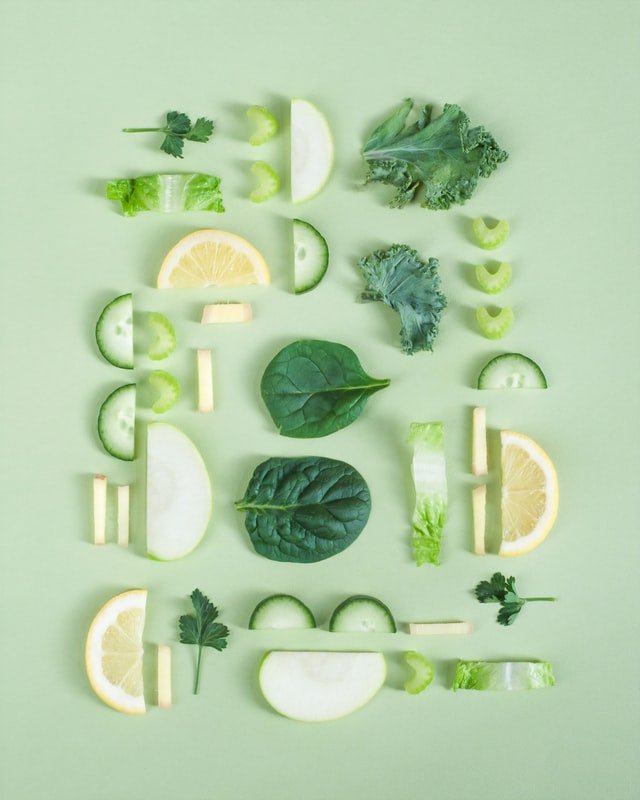The clove tree (Syzygium aromaticum) is an evergreen native to the Malay Archipelago, a vast tropical region that includes Indonesia and Malaysia. The tree produces a fragrant flower bud (clove) which is dried and used as a spice. Cloves are not only flavorful, but also provide anti-inflammatory, antibacterial and antioxidant benefits. Cloves are used to flavor both savory and sweet dishes.
Most commonly, cloves are used in baking, in combination with cinnamon and nutmeg. They can be used whole or ground into powder form. Ground cloves have a nuttier flavor than whole cloves.
Cloves may be purchased whole or ground at most grocery stores. Because of their strong aromatic smell, cloves should always be kept in an airtight container, away from sunlight and heat sources.
To purchase whole cloves: look for whole cloves that are uniform in size, with no signs of softness or decay. Whole cloves will keep for up to one year when stored properly**
To purchase ground cloves: look for ground spices that are uniform in color and texture with no signs of moisture or excess oil on the package. Ground spices will keep for up to one year when stored properly**
Cloves are the dried, unopened flower buds of a tree in the myrtle family. They have an intensely aromatic flavor and aroma. In fact, clove oil is used in some mouthwashes, toothpastes and perfumes–the latter because it is said to have a pheromone-like effect on libido!
Cloves are one of the most heavily traded spices. They are native to Indonesia and were brought to Europe by Arab traders. They are now grown in many parts of the world including the West Indies, Madagascar, India and Sri Lanka.
How to Use Cloves
Cloves are used for their flavor as well as their high level of antioxidants. The spice is often used as an inexpensive substitute for cardamom; however, its flavor is much more intense. Ground cloves can be sprinkled on baked goods or desserts, or used in meat dishes such as curries and stews. Whole cloves can be added to pickling liquids and marinades.
Many people use cloves medicinally, either by themselves or in combination with other herbs or essential oils. Cloves are said to have antiseptic properties which make them useful for treating infections of all kinds; they also work against toothache and can help relieve gas pains
Ground cloves are made from the dried, unopened flower bud of a clove tree. Allspice and cinnamon are made from different parts of the same plant. Cloves are used in cooking to flavor meats, fish, desserts, snacks and beverages. They can be used whole or ground into powder. Cloves are also used in perfumes, soaps and toothpastes.
Though they have been used for centuries as a medicine to treat coughs, toothaches, bad breath and more, there is little scientific evidence that cloves have any medicinal value today.
Cloves were first brought to Europe in the 16th century by Portuguese traders who found them growing wild on the tropical island of Zanzibar off the coast of Tanzania. Today, Indonesia grows about two-thirds of the world’s supply of whole cloves and about three-fourths of ground cloves.
Toxicity
Though there are no reports of anyone having been harmed by ingesting large amounts of cloves intentionally or accidentally, it is possible that problems could occur with a large enough dose because they contain an oil that may irritate the stomach or intestines when consumed in large amounts.
Dietary Restrictions
Most spices do not require special handling before or after cooking because they are already cooked
Cloves are the dried flower buds of a tropical evergreen tree, Syzygium aromaticum. The buds are harvested by hand, then sun dried and left in their natural state for storage. The resulting product is available in whole or ground form.
Cloves have been used as a spice for thousands of years and were once so valuable that they were used as a currency in some parts of Asia. Cloves are still used today as an essential ingredient in many recipes and are particularly popular during the winter holiday season.
The strong flavor of cloves makes it ideal for use with meats, baked goods and confections. It can be added to recipes for fruit cakes, fruit compotes, baked apples, pears, lemon pie and fruit cobblers to heighten their flavor. Cloves also make a wonderful addition to holiday cookies and other festive treats during the Christmas season. Clove oil is extracted from the clove bud and is widely used in perfumes due to its distinctive spicy scent.
The clove is the unopened flower bud of a tropical tree. The tree is native to the Maluku Islands, which are located in Indonesia, and cloves have a strong aroma similar to that of nutmeg.
The cloves are usually dried, and they are often used as an alternative to nutmeg or cinnamon. Clove is available whole, ground and in oil form. Cloves may be used fresh or dried in cooking, but if you buy whole cloves, you must dry them before using. You can find whole cloves at some specialty grocers and spice shops.
Cloves are the unopened flower bud of an evergreen tree native to the Maluku Islands in Indonesia. The name comes from the Latin word clavus, meaning “nail,” which refers to the shape of the buds.
Cloves were once found only on one island, now called Ternate, but today they are also collected on other islands in the region.
Cloves are harvested when not quite mature and must be dried before they can be used. They have a warm and pungent flavor that is slightly sweet, with a hint of eucalyptus and mint.
Cloves are the dried, unopened flower buds of a tropical tree. The spice is obtained by pounding and grinding the flower bud. Cloves are used as a flavoring in food and beverages, as an aromatic in potpourri, and for medicinal purposes.
The name “clove” comes from the Latin word clavus (meaning nail).
Cloves have been highly valued throughout history for their medicinal properties, especially as an analgesic (pain reliever) during toothaches. Cloves are also used as an antiseptic and carminative (to promote expulsion of gas from the stomach and intestines), and to relieve nausea and vomiting.
The essential oil of clove is used in perfumery. Cloves are also used in some dentifrices, mouthwashes, and soaps.
For all its uses, cloves have been considered a symbol of strength for thousands of years.

